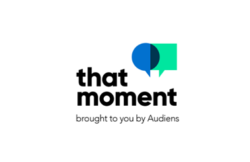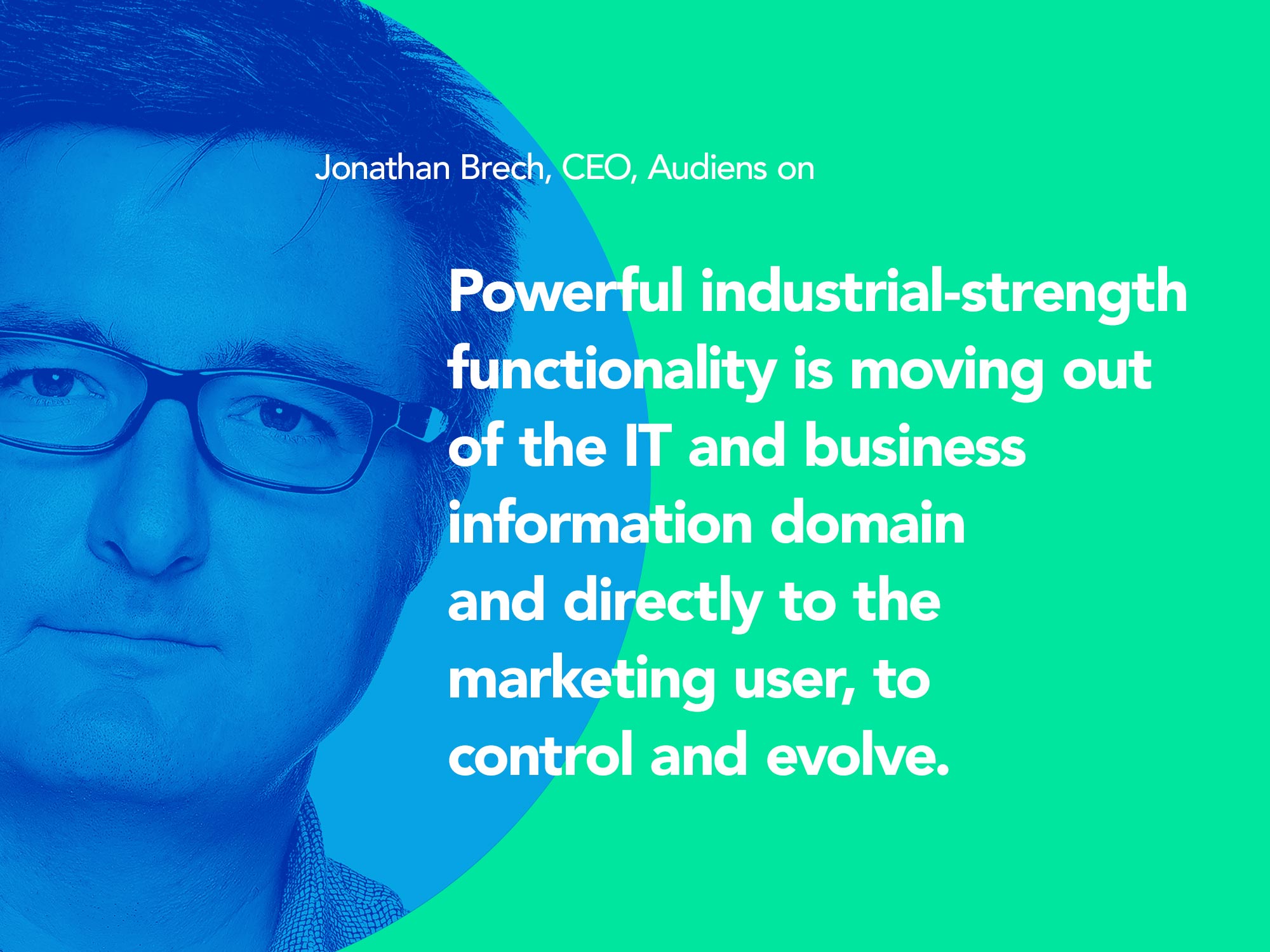 As the new Chief Executive Officer of Audiens, Jonathan ‘Jonno’ Brech brings more than 20 years of strategy and digital marketing expertise to the company. Brech created Cambridge Data in 2012 and was the Interim Head of Digital at KFC in the UK and Ireland. He’s seen the industry shift from dependence on the planning skills of media agencies to a mandatory reliance on the monoliths of Google and Facebook.
As the new Chief Executive Officer of Audiens, Jonathan ‘Jonno’ Brech brings more than 20 years of strategy and digital marketing expertise to the company. Brech created Cambridge Data in 2012 and was the Interim Head of Digital at KFC in the UK and Ireland. He’s seen the industry shift from dependence on the planning skills of media agencies to a mandatory reliance on the monoliths of Google and Facebook.
Brech is adamant that data management must be a part of how marketing reaches its audience. He also believes that marketers have put too much focus on new tools and not enough focus on the discipline of understanding the customer’s user journey, with the art and science of consumer behavior modeling.
For Audiens’ That Moment series, Jonathan shared his insights on his defining moments in digital marketing, taking the helm at Audiens and the decline of the media agency influence and how customer data platforms (CDP) will evolve.
Audiens: One of your first positions was a business development manager, and you’ve also been a CMO, head of digital, an entrepreneur, and now the new CEO at Audiens. In the course of your career, what’s been the most significant shift you’ve seen?
Jonathan Brech: Yes, it’s been quite a wild ride over the years. But the biggest shift I have seen is the reduced influence of the media agency and professional planning disciplines as Google and Facebook have come to control budgets and foster direct relationships with advertisers. I also think Amazon is moving into that genre as well. This inequitable shift to the control of the few walled-gardens bothers me.
Audiens: That sounds like the end of days for media agencies, if that is the case, what is the brand’s challenge when it comes to capitalizing on their marketing spend if media agencies are declining?
Brech: I think that the entire ecosystem has to face the fact that things have changed, but it isn’t for the worse. Hands down, for brands, their biggest challenge is the increased complexity of channels and the efficacy of the multiple channels for reaching their target audience without duplicating spend. With ever-increasing data points from traditional media, the growing challenge is how they take responsibility for administering the insights they have from their data and how they share it with their advisory partners.
Audiens: So, what are brands looking for in terms of engagement with their audience?
Brech: Brands with direct relationships are looking to make sure they communicate with their clients in the most cost-effective channels, and wherever their customers find it convenient. Many brands without direct relationships are experimenting with creating direct contact points, for instance, the alcohol brands seeking to form direct data relationships with pub and club-goers to understand more about their customers’ and prospects’ wants and needs.
Audiens: You’ve seen a lot of tools over the years come and go, so how do you think CDP evolve over the next several years?
Brech: I see CDPs evolving their functionality in three ways: towards semi-automatic marketing models or plug-in to best-in-class providers; automatic media-buying and other ‘nudge’ functionality as advertisers’ confidence grow in their model predictions, and by refining their onboarding of customers and data providers to improve ‘plug and play’ for marketers. When it comes to DSP’s however, I don’t see that model changing very much, but with all the impending cookie doom, the data inputs will definitely change.
Audiens: Okay, we all know that technology has played a significant role in shaping CDP functionality, but outside of that platform, what has changed for brands tech-wise in how they reach their audience?
Brech: The powerful industrial-strength functionality is moving out of the IT and business information domain and directly to the marketing user, to control and evolve. This means that the marketer gains instant visibility on their audience behavior and can collaborate with colleagues on which ‘nudges’ work to push the different to the next most desirable outcome. Whether that’s buying media better or messaging via email, messenger, etc,. It’s a much faster way of understanding and responding to the way your consumers are behaving.
Audiens: If you could change anything in the digital marketing industry, what would you change?
Brech: I’d reduce the still slow cycle time in testing digital media channels, using more automated decision making driven by ‘maths rules.’ Testing to optimize incrementally is an underlying discipline that has to be diligently maintained to improve your customer economics metrics iteratively.
Audiens: Can you think of one defining moment in your career when you knew the industry was changing?
Brech: Yes, easily. Back in 2012, I asked a media agency, Chief Experience Officer, if they thought it was possible to build a major brand from scratch without TV now. They said yes, and there was this eerily quiet moment while we both reflected upon our career choices; he was working in a company where the bulk of the revenues were commissions from TV and ‘out of home’ buying. I was employed by a conventional ‘above the line’ creative agency that made its fees from making TV ads!

